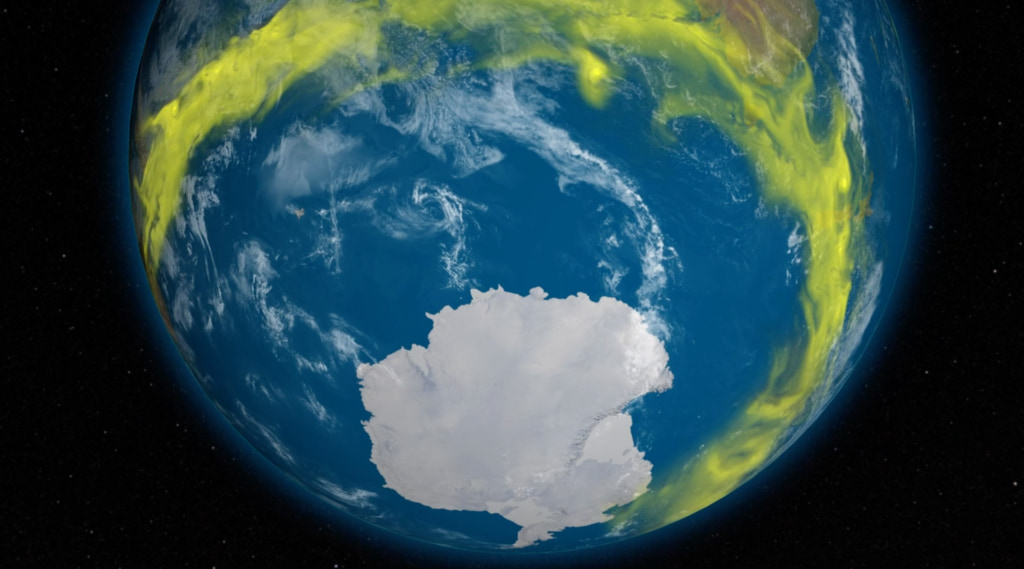Chemical Model Animation of CFCs Releasing Chlorine to Form Reservoir Gases
Most stratospheric chlorine comes from man-made compounds called chlorofluorocarbons or CFCs. CFCs, widely used in refrigerators and air conditioners, are quite harmless and non-reactive in the lower atmosphere. Carried slowly upward by the earth's winds, they can survive the 5 year journey to the upper stratosphere. Here, above most of the ozone layer, the sun's ultraviolet radiation breaks down the CFCs into the more reactive chlorine compounds that destroy ozone. Chlorine can react with methane to form hydrogen chloride. Chlorine can also react with ozone forming the radical chlorine monoxide. Chlorine monoxide then combines with the radical nitrogen dioxide to form stable chlorine nitrate. Chlorine nitrate and hydrogen chloride are called reservoir gases for the chlorine radical. These reservoir gases usually contain more than ninety percent of the chlorine in the lower stratosphere.
CFCs being broken up by UV radiation and the formation of hydrogen chloride and chlorine nitrate from the resulting chlorine

Video slate image reads, "The Upper Atmosphere Research Satellite
Chemical Model Animations
Showing Ultraviolet radiation reacting with CFCs releasing chlorine, which react with methane to form hydrogen chloride. Then showing chlorine also react with O3 forming the radical chlorine monoxide. Then showing chlorine monoxide combining with the radical nitrogen dioxide to form stable chlorine nitrate."
For More Information
Credits
Please give credit for this item to:
NASA/Goddard Space Flight Center
Scientific Visualization Studio
-
Animators
- James W. Williams (Global Science and Technology, Inc.)
- Jesse Allen (Raytheon)
-
Greg Shirah
(NASA/GSFC)
-
Scientist
- Mark Schoeberl (NASA/GSFC)
Series
This page can be found in the following series:Release date
This page was originally published on Friday, April 9, 1999.
This page was last updated on Wednesday, May 3, 2023 at 1:59 PM EDT.
